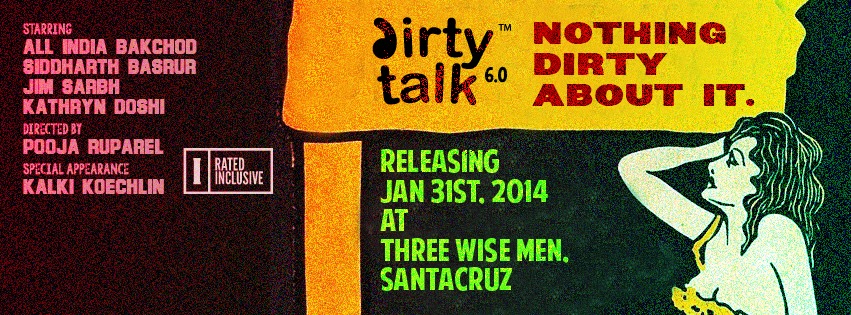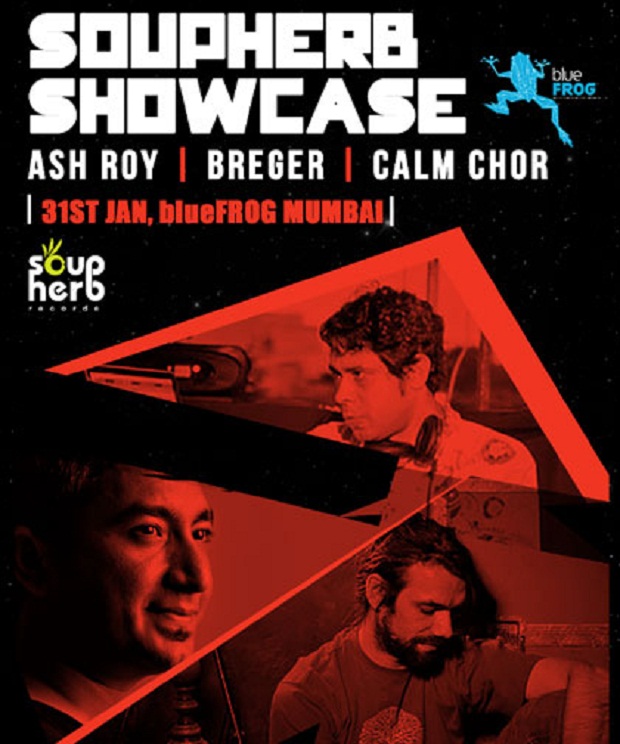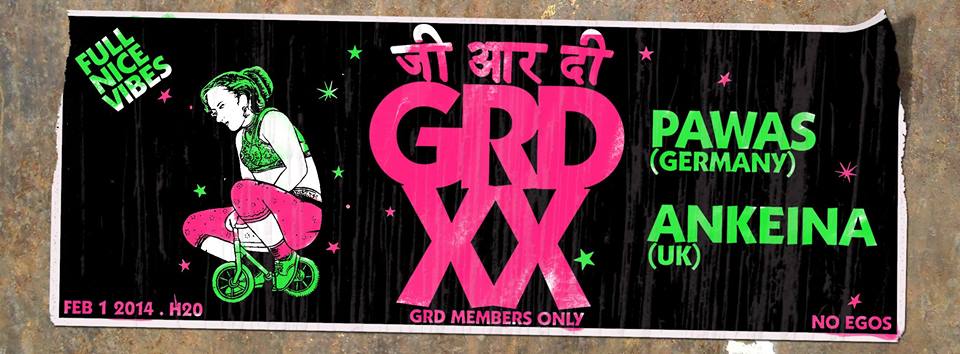
Picture: Suguna Sridhar
The erstwhile Cafe Goa in one of Bandra’s many bylines was a venue that found itself on the cusp of a revolution in Mumbai back in 2009. The dingy resto-bar cramped the garage of a building all those years ago and over glasses of chocolate martinis and bowls of pork vindaloo, the small stage it offered ended up becoming the birthing room of alternative culture in the city. This is where open mic nights, experimental cinema and jam bands first found a podium. Many whet their talents on this corridor, and amongst the crowd was this duo who married spoken word poetry, squeaky clean and shrill vocal textures, and long-drawn awkwardly sexy guitar solos. That was Sridhar/Thayil, a combine of indulgent sound scapes that offered the extreme alternative to the ordinary Indian indie artist. There was nothing structural about the post pop act that was far removed from the pop, punk and rock narrative at the time. We first saw Suman Sridhar storm this small stage. She squeaked, squealed, came unhinged, undone, swayed us with the jazz vibrato in her voice and brought it all to a screechy halt with whispering, whimpering wisdom in our ears. Sheer raw talent in the making. Four years since, Sridhar has given her voice to songs as diverse as the Hindustani/jazz Punk Bhajan to stretching her vocals for comedy metal Pudhe Sarka (original song by Workshop), to breathing new life into “Kala Bazaar’s” already-immortalised Khoya Khoya Chand. More recently, Sridhar came out and stood up in defiance of the IPC’s Section 377 that criminalises homosexuality. The artist released a cover version of the 1960s Bombay jazz song, Evening In Gay Maharashtra as a protest song. “I am saddened by the Supreme Court’s dismissal of the review petitions to reverse the criminalisation of ‘unnatural sex.’ Lord Mcauley and 1860 came and went, yet the slaves are more loyal than the masters! shame on THEM!” I am PROUD&QUEER. #urgentcalltoexpression #freedomtobe,” she wrote on her Facebook wall. We spoke to Sridhar about her fight, her experimental solo work post Sridhar/Thayil’s debut release “STD” called sumanison and how far she’s come.
Q-1. What prompted you to cover Evening In Gay Maharashtra and offer it as support to the LGBT community fighting criminalisation in India? How did you choose the direction of the song and video?
Evening in Gay Maharashtra has been chasing me about for over a year now. At different historical moments in Mumbai, the 1969 song took on renewed meanings— whether it was on the occasion of police raids of bars and nightlife spots in 2012, the death of a right-wing leader who without ever holding an official position caused the entire city to shut down or whether it was the Supreme Court’s recent revalidation of Section 377 of the Indian Penal Code which criminalises adult and consensual sex deemed to be “unnatural” as punishable for upto 10 years. Prohibition has long come and gone, yet the Bombay Prohibition Act of 1949 remains; Lord Macaulay and 1860 came and went, yet Victorian morality persists. Evening in Gay Maharashtra was written, lost and buried, yet the gayness of “maha rashtra” persists, while the happiness of gays in Maharashtra continues to be threatened. And so I was simply compelled to reinvent and release Evening in Gay Maharashtra in collaboration with visual artist and filmmaker Natasha Mendonca. It was the need and call of the hour, so we may imagine a world of tolerance, equal rights and dignity for all.
Q-2. What have you been busy with since “STD” came out last year? Are Sridhar Thayil making new music? Any new gigs we could catch you at?
I have been acting, singing, writing, researching, composing and collaborating— for performance art, for a feature film, for a video-installation piece. My new works seek the intersection of mediums through improvised and staged experiments that become the means as well as the end. The process has become as important to me as the “product,” rather they are one and the same. As somebody once said, the journey has to feel the way you want the destination to feel. And so I have in many ways regressed to a childlike exploration of the arts. In the past year and a half, I have collaborated with dancers, visual artists, theatre artists, designers and performed at venues ranging from a conventional music festival stage at Bacardi NH7 Weekender in Pune, to Transformation 19104 an experimental performance in a church in Philadelphia, to presenting spoken word at a literary festival in Bengaluru. After all, specialisation receives over emphasis in our capitalist modes of production, while a free exploration of all arts can indeed be one’s natural inclination.
Sridhar/Thayil has organically been asleep for a bit now, since Jeet’s success with ”Narcopolis” has taken him globetrotting on a world book tour. Inshallah, we will be back, just as nature ebbs and flows.
Q-3. Post “Talaash,” have you lent your voice for any more background singing in movies?
I recently lent my voice and music to the independent feature film Ajeeb Aashiq (2015) by Natasha Mendonca.
Q-4. You have a very unique baritone and your musicality has revived old Bollywood songs, given ad jingles a new twist and added theatre to live shows. Are you working on any new stuff of your own?
I have already gone solo- sumanison. I released a single Before Sleep, and now this music video. I have been playing solo sets accompanying myself on the keys, and will shortly begin recording a solo album.
Q-5. What inspires your songwriting?
REM, Eartha Kitt, African-American feminists, poetry, nautanki, my parents who gave me the gift of music.
Q-6. A while ago you aired your feelings about how OML and NH7 have been monopolising the music scene in the country. Do you still feel the same?
My opinions have been misinterpreted as a critique of monopolisation, whereas in fact they were about the ethics of journalism. Despite my opinions, I hold nothing against OML or NH7— they curate independent music in this country, more power to them. There must be room for debate however; it cannot be reduced to personal attack; that is not the intention or purpose of debate. I agree to disagree, it’s as simple and yet as profound as that.
Q-7. What do you feel about music companies like T-Series refusing to pay royalties of songs to singers and composers?
I think a lot of industry in this country, as with government and bureaucracy work under this one motto: might is right. Suketu Mehta aptly calls India a nation of ‘NO.’ It is only until artists stop saying ‘YES’ to atrocious ‘NOs’, that the system can change and justice may reign.
Q-8. What does the future hold for Suman Sridhar?
Art, debate, showbiz— more, still, more, still— sumanison, now and how. I like to live by the motto of the title to one of my favourite songs: The Best Is Yet To Come.































